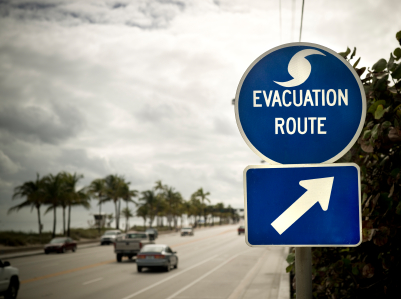Continued dry and warm conditions in many western and southern states are expected to bring another severe wildfire season for 2013. Because of this, the Insurance Institute for Business & Home Safety is urging home and business owners to take action now to effectively reduce their wildfire risk. “Wildfire losses have been on the rise during the past couple of years in several states, with Colorado, Texas and Wyoming being particularly hard hit,” Julie Rochman,…
Read Morehome insurance
Super Bowl parties and drunk driving are a liability risk
As homeowners line up deli trays and other snacks for Super Bowl Sunday, they should protect themselves financially by lining up a team of designated drivers as well. Super Bowl Sunday is one of the most hazardous driving days of the year, especially when impaired motorists drive home after the parties, according to the Insurance Information Institute. Contributing to the inherent dangers of drinking and driving is the relatively late kickoff (6:30 p.m., ET) and…
Read MoreFire deaths on the rise as the outside temperatures fall
Many people spend their winters inside and turn to alternative heating sources to keep warm, but along with it comes an increased risk of fire. This year is no different. The U.S. Fire Administration warns that home fires have claimed 148 lives in the first three weeks of January alone. Home fire incidents are collectively highest in the three winter months of January, February and March. Cooking and heating are the leading causes of these…
Read MoreSurviving a winter storm
Already heavy snows in parts of the U.S. is a reminder that when the white stuff falls it’s time to get ready for what else may come this season. Snow itself can bring down power lines or trees and make it impossible to get around. Freezing temperatures can produce frozen pipes and all the headaches that come with it. It’s important for homeowners and businesses to be prepared for potential hazards and know what to…
Read MoreHoliday giving can require an insurance readjustment
When it comes to holiday giving it may be the thought that counts, but when it comes to insurance the bottom line is what’s covered for a potential loss. Even keeping grinches from stealing the Christmas goodies doesn’t guarantee items will stay safe. They can be lost or destroyed by any number of disasters. That’s why anyone giving or receiving a costly item should make sure it’s covered by their insurance provider, according to the Insurance Information…
Read MorePrepare a home for winter before the temperatures drop
The fall is a good time for homeowners to winter-proof their homes, before old man winter returns with a vengeance. According to the Insurance Information Institute, many winter-related disasters can be prevented if people take the time to protect their home from freezing temperatures, snow and wind. “Standard homeowners policies cover winter-related disasters such as burst pipes, ice dams and wind damage caused by weight of ice or snow, as well as fire-related losses,” Jeanne…
Read MoreTips on securing a home while away on vacation
Summer vacations may be fun, but they can be costly for those who fail to prepare their home and property adequately. Burglars see vacations as an opportunity to target empty homes, according to the Insurance Information Institute. There are more than 2.15 million burglaries each year, over 65 percent of which are residential break-ins. The FBI notes that the summer months of July and August have the highest rates of burglaries, usually about a 10…
Read MoreWhy testing smoke alarms is important for home fire safety
According to the National Fire Protection Association, smoke alarms can help save lives, provided they are installed and maintained.
Read MoreReport: Customers are more satisfied with bundled insurance policies
Bundling home and auto insurance may lead to greater satisfaction among consumers, according to a recent report from J.D. Power and Associates.
The ratings firm’s 2010 U.S. National Homeowners Insurance Study found that consumers who combined these types of policies were generally more satisfied with their coverage. This was especially true for member of Generation Y, who were born between 1977 and 1994.
Read More





















